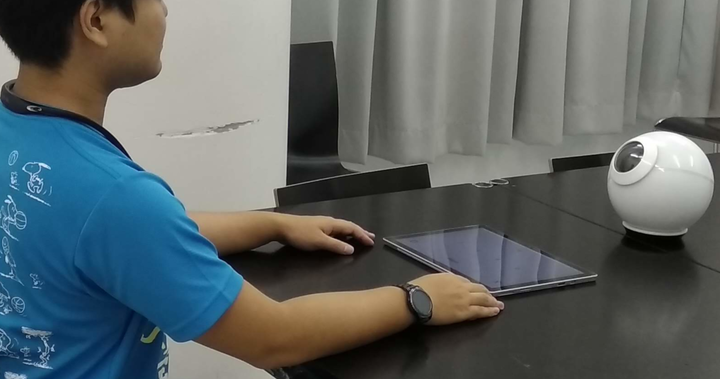Design and Evaluation of a Spherical Robot with Emotion-Like Feedback during Human-Robot Training
 Spherical Robot with Emotion-Like Feedback
Spherical Robot with Emotion-Like FeedbackAbstract
While robotic assistants capable of automating many a task are becoming more ubiquitous, the complexity and unfamiliarity of such machines may discourage users from interacting and personalizing their robots. For that reason, the goal of this research is to study how a robot that expresses emotion-like feedback using movement affects the training interaction experience of non-expert users. To that end, a single-eyed spherical robot was developed using a Kansei design approach. A within-subjects experiment, between the robot expressing feedback and a control version that did not, was conducted with participants who had little to no experience interacting with robots. The results showed an increase in arousal when the robot expressed feedback and the overall interaction was considered engaging. Also, a positive correlation between bonding scores and relevance of the task was found. The contributions of this research are toward the development of human-trainable robots with transparent learning behavior.